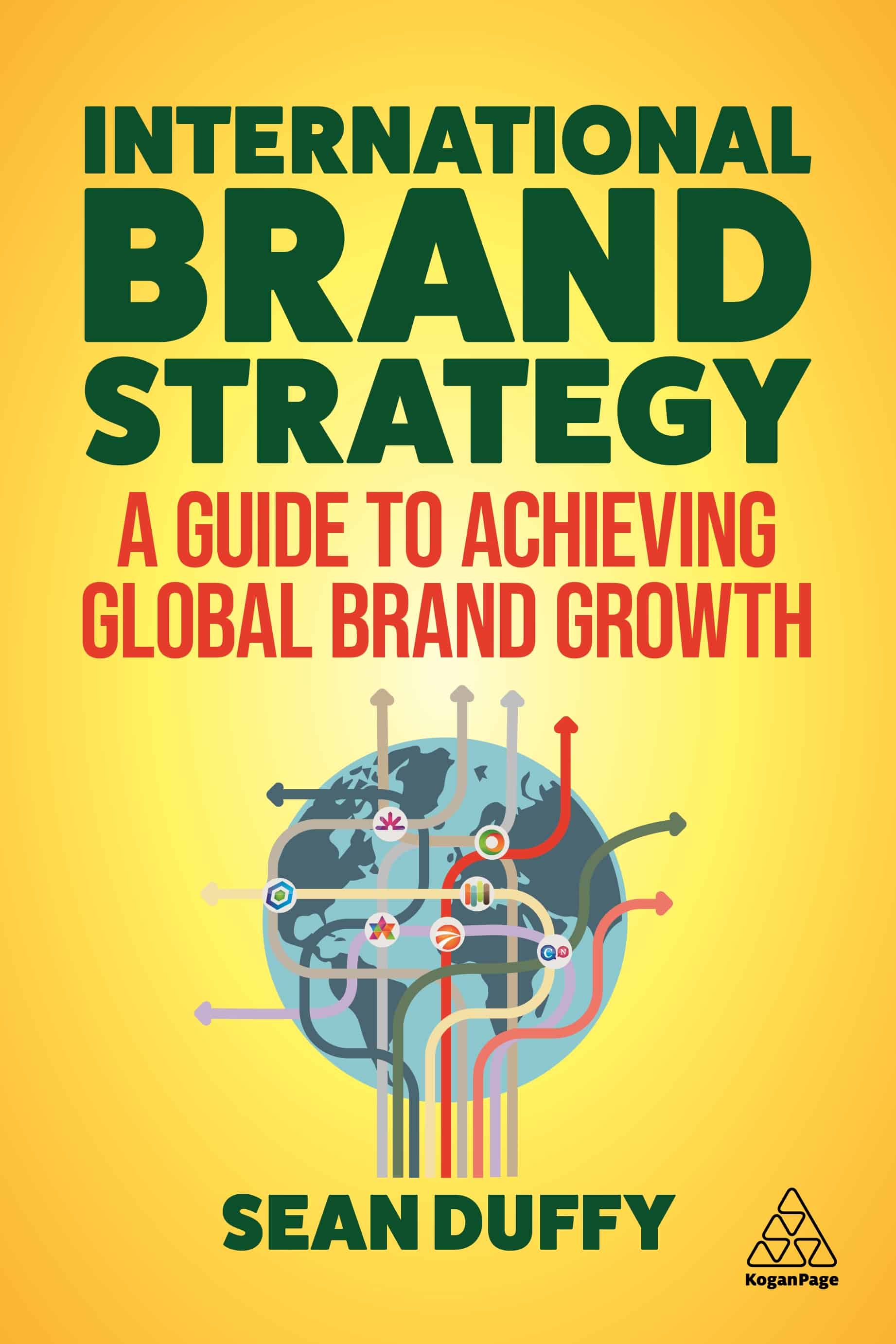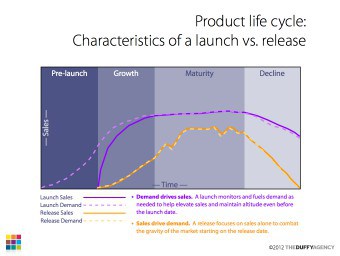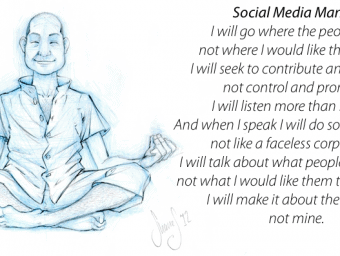What I learned at Cannes Lions 2009
Big ideas win big at Cannes. Will advertising ever be the same? The global slowdown in the ad biz took center stage at every talk and semin...
17 Jul 2009 3496 ViewsBig ideas win big at Cannes. Will advertising ever be the same?
The global slowdown in the ad biz took center stage at every talk and seminar this year at Cannes Lions. You could also see it in the smaller number of attendees and their general demeanor. Everything was a bit less grand, a bit less frivolous this year. Steve Ballmer, the CEO of Microsoft, spoke to this point reminding us that we are not in a recession but a restart. He maintains that there are new forces shaping our economy. He said the faltering we see is simply society getting used to dealing with them. He made a special note of how they are reshaping the role of ad agencies.
At the closing ceremony, the organizers of the festival echoed Ballmer’s sentiments and said that this year would be a restart for the Cannes Lions as well. This theme was underscored again in David Lubars’ introduction to the film awards. Lubar, the head of the film jury, said that Cannes winners from now on will have to be more grounded in solid business value for clients. When he
announced that “This year you won’t see any scam ads” he got a round of applause. Scam ads refers to ads that were created for the sole purpose of entering them into award shows. Lubars promised that the winners this year would all reflect real marketing solutions to real marketing problems. I was glad to hear this. But it begs the questions: Why has work that did not reflect real marketing solutions to real marketing problems been entertained by Cannes juries for the past 55 years? I believe it is because the advertising industry has always been confused over its identity. This year’s Cannes restart seems to have resolved that debate and in doing so has marked a fundamental shift in the way agencies serve their clients.
Agencies pride themselves on their creative prowess. But their definition of “creativity” has always been quite limiting. To most ad agencies creativity refers exclusively to novel combinations of images, copy and sound applied to print, outdoor, radio and TV with virtually no accountability to business results. This is what wins shiny pencils and lions, keeps fragile egos inflated and attracts clients who don’t know how else to judge an agency. There is nothing wrong with this. Its what makes the world go round. And I have been as guilty as anyone for contributing to it.
The only flaw in the systems is that quite often the agency’s need for recognition from other agencies seems to eclipse the needs of the client. When that happens, every client ill is prescribed the same cure: a large dose of whacky creative execution. Toss a tutu on a blue gorilla and have him dance the fox trot with Willem Dafoe in Grand Central Station and BINGO you’ve got a winner! An account director friend refers to this type of advertising as sponsored entertainment. That’s exactly what it is. And when these ads win awards the business result for the client is always given short shrift if it is mentioned at all. I’m not saying you can’t be entertaining and solve real marketing problems at the same time — you can — but as the Cannes judges themselves indicated, it has not been a requirement.
If the 2009 Cannes Lions are any indication, this era of agency self-indigence seems to coming to a rather abrupt close. I wish I could credit our industry, but it wasn’t us. It was a matter of survival born of three factors: evaporating advertising budgets, an indomitable media environment and omnipresent measurability.
These three forces are changing the fundamental nature of the advertising business — for the better. Today, agencies are being forced into accountability like it or not. They are being forced to provide real strategic business solutions. And they are being forced to display creativity in every aspect of the business not just with their words and images. These are things agencies have been claiming for decades, but have never really delivered on.
The most persuasive evidence to support this argument are this years winners at Cannes. The biggest awards of the event, the Titanium and Integrated Lions, went to a campaign that was created without the help of an ad agency at all. It was conceived and created by the slightly geeky, incredibly competent political advisor David Plouffe and a team of volunteers. It had no blue gorilla. It had no special effects, no amazing imagery, not even a clever headline. In fact, any one piece of Barack Obama’s campaign on its own could be accurately described as mundane. But the sum of these pieces was a campaign that was as original, bold and creative as any I’ve ever seen. This is to say nothing of its historic effectiveness.
The other big winner was a global recruitment ad campaign with a total budget of $1.2 million US. The lack-luster headline on the small black and white classified ad simply read “The Best Job in the World” followed by a routine job description. What made this extraordinary was that it was a tourism campaign. The job being advertised was a six month stint acting as caretaker on a tropical island in the Great Barrier Reef for $120,000 US. To apply, you just needed to submit a video to YouTube. As you might imagine news of this job opening spread like wildfire across the internet. 35,000 applicants uploaded 610 hours of YouTube Video. In the first 56 days the campaign website logged about 7 million unique visitors and 50 million page views with the average visitor staying for 8.62 minutes. Every major news network around the globe covered the story generating over $100,000,000 US in additional free exposure across traditional media as well. Again, no ape – just a brilliantly creative business idea.
This same type of creativity could be seen in Fiat’s award-winning EcoDrive Campaign in the UK and Nestle’s award-winning Kit Kat Mail campaign in Japan and Haagen-Daz’s campaign to save the honey bee. Exceptionally novel, creative and exciting business ideas with nary a shocking visual or rib-splitting headline in sight. And all proven to provide an exceptional return on investment with hard data. Of course they were very well executed, but that was not the source of their power or appeal.
Its not the fist time Cannes judges have awarded “big idea” campaigns like this. But the dominance of this type of campaign at this year’s Cannes Lions signals a tipping point in our industry that raises the bar for ad agencies around the world. These campaigns show a level of maturity, restraint and insight that is new to advertising. Their creativity does not spring from novel use of words and images, but rather springs from novel use of business and market insights. This is not to say execution is not important. Copywriting, art direction and production are still essential elements, its just that they serve a higher purpose beyond disruption and entertainment alone.
Will this trend stick once the economy bounces back? I think it will. Because even if budgets bounce back, agencies and clients still have to adapt to a PULL-driven market where it is increasingly difficult to own the media and where success to avoid the scrutiny of increasingly sophisticated analytics. I applaud this years Cannes Lion juries. Their choices have signaled a change that will benefit both ad agencies and their clients.
Like this post? You'll find more marketing insights in my new book: International Brand Strategy: A guide to achieving global brand growth, now available from booksellers globally. Order your copy here.
Speaker, consultant & founder of Duffy Agency, the flipped digital agency that provides accelerated growth to aspiring international brands.





